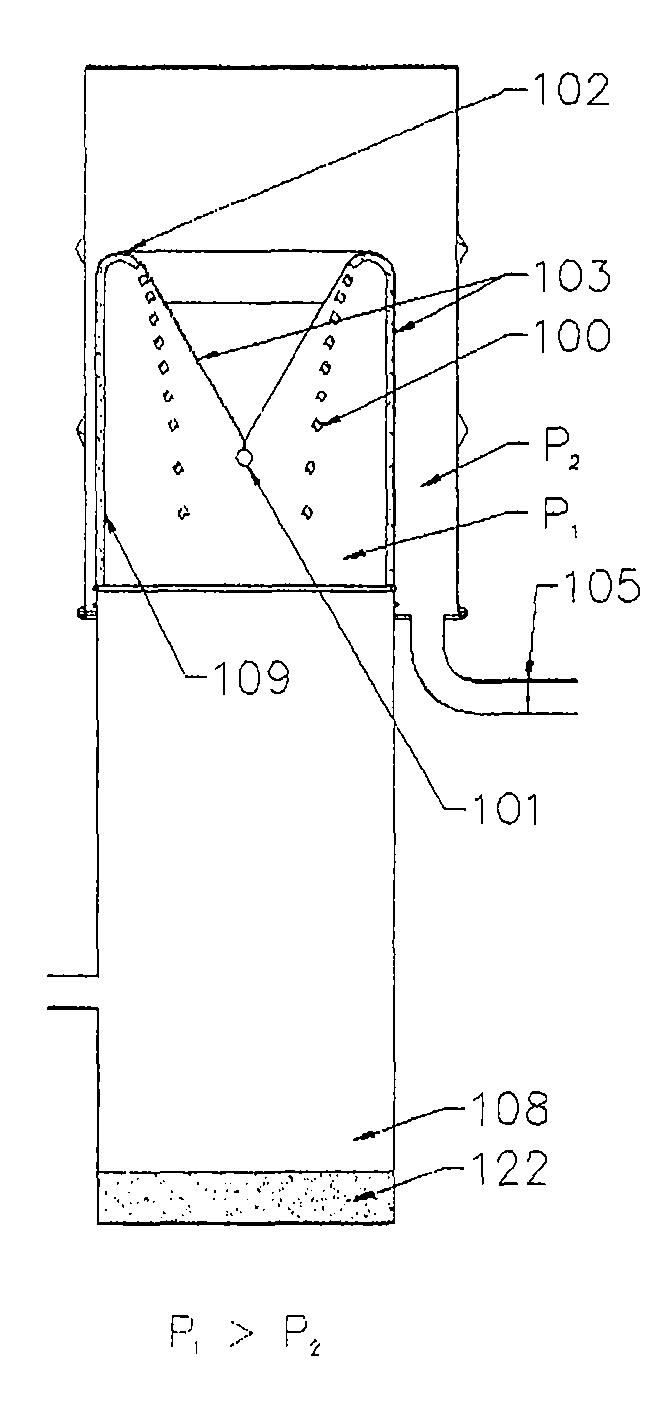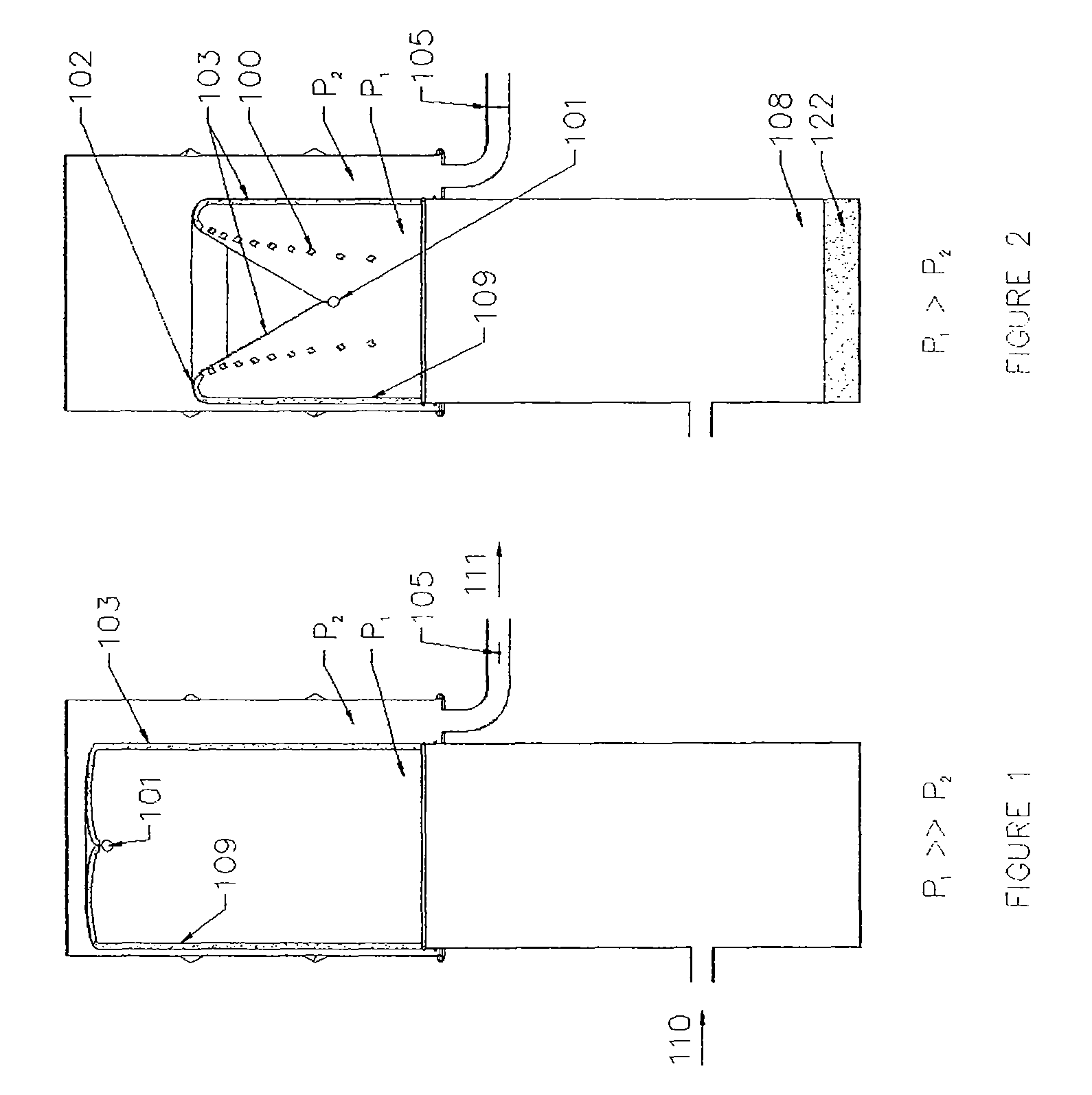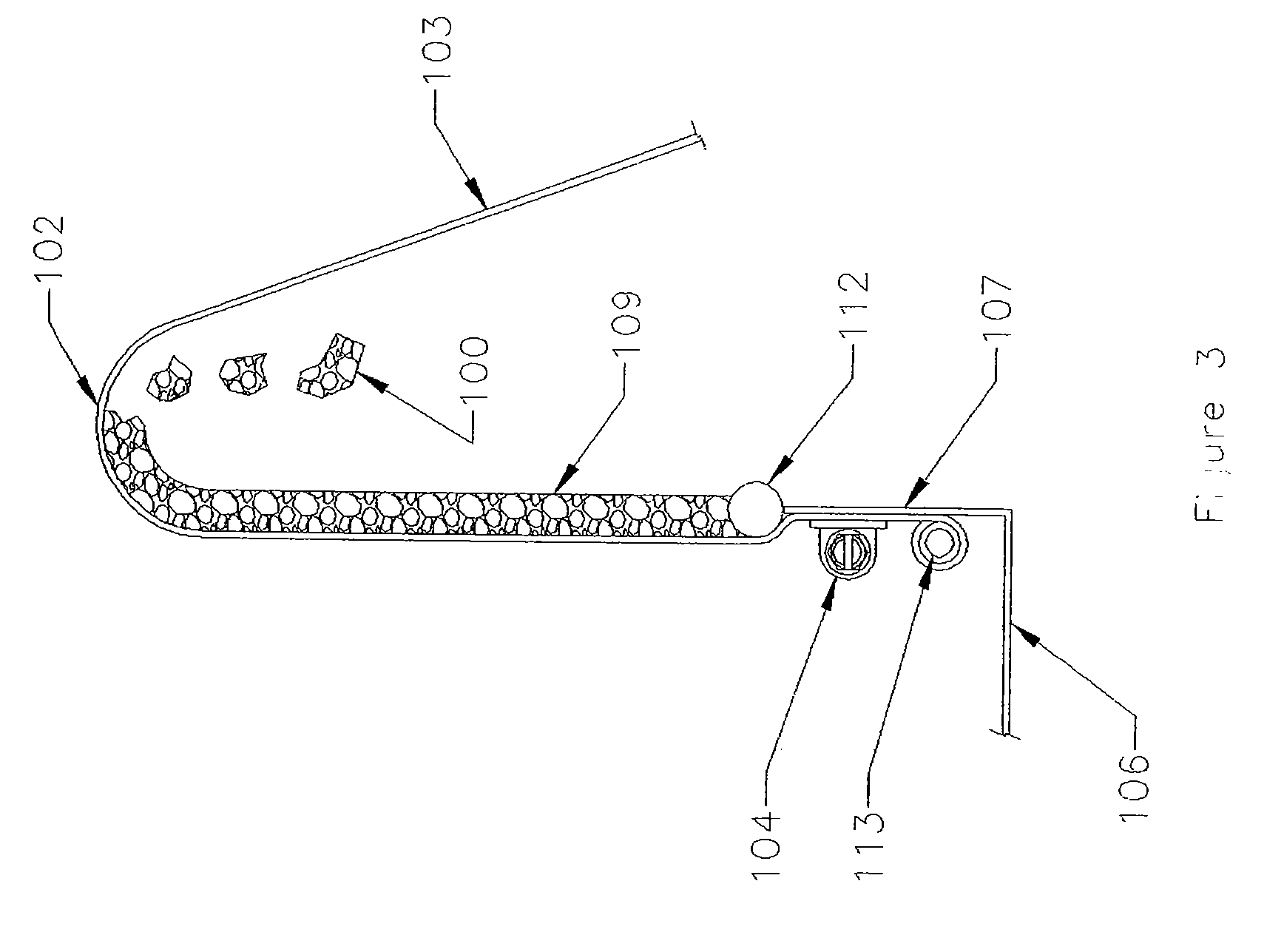Method and apparatus for a self-cleaning filter
a filter and self-cleaning technology, applied in the direction of auxillary pretreatment, mechanical details of gasifiers, separation processes, etc., can solve the problems of reducing performance, severe damage to components within the system, and reducing product quality, so as to reduce the dependence on external power sources in a gentle and efficient manner, and the effect of not involving or minimizing the dependence on external power sources
- Summary
- Abstract
- Description
- Claims
- Application Information
AI Technical Summary
Benefits of technology
Problems solved by technology
Method used
Image
Examples
Embodiment Construction
[0023]Embodiments of the present invention encompass systems and methods that allow an inflated filter to slowly deflate and to gently turn itself inside out after the flow of fluid is significantly reduced or eliminated completely.
[0024]Some current filter techniques rely upon water scrubbing to remove residual fine particles from fluids such as hot gases. Typically, the water used for scrubbing is in the form of a mist. Unfortunately, these scrubbing mists can be themselves difficult to remove from the fluid stream. The use of water scrubbing may also create a waste-water disposal problem. Coalescing filters are often used to remove these fine materials and mists by Brownian motion, but can introduce a significant, undesirable pressure drop to the system. In some cases the captured particles may not be washed off the coalescing filter by the captured mists, and the coalescing filters may require periodic service to remove the captured particles, or the coalescing filters may need ...
PUM
 Login to View More
Login to View More Abstract
Description
Claims
Application Information
 Login to View More
Login to View More - R&D
- Intellectual Property
- Life Sciences
- Materials
- Tech Scout
- Unparalleled Data Quality
- Higher Quality Content
- 60% Fewer Hallucinations
Browse by: Latest US Patents, China's latest patents, Technical Efficacy Thesaurus, Application Domain, Technology Topic, Popular Technical Reports.
© 2025 PatSnap. All rights reserved.Legal|Privacy policy|Modern Slavery Act Transparency Statement|Sitemap|About US| Contact US: help@patsnap.com



